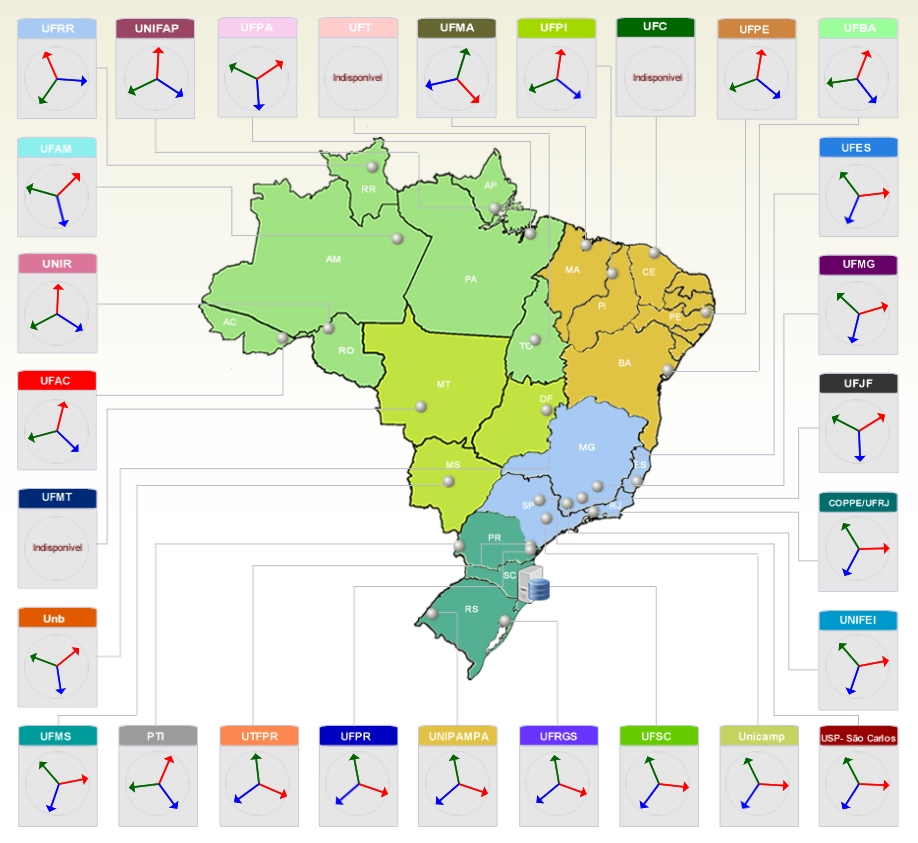The MedFasee Project was launched in 2003 through a partnership between a group of researchers from the Laboratory of Electricity Systems Planning (LabPlan) at the Federal University of Santa Catarina (UFSC) and the equipment manufacturer Reason (now part of GE Brasil), which also received public funding. The main goal was to develop synchrophasor measurement technology in Brazil, starting with the development of a prototype Phasor Measurement Unit (PMU) for low voltage, and to study its applications. [1].
Over the years, the project has created an independent observatory for the dynamics of several power systems, by installing PMUs at universities and partner groups. In Brazil, there are more than 20 PMUs installed across the country’s geo-electric regions, whose data is transmitted to concentrators located at UFSC and at the University of Campinas (Unicamp) by clicking herei. This observatory enables studies to be carried out, such as [2], which investigated the impact of the COVID-19 pandemic on the frequency control and oscillation modes of the National Interconnected System (SIN, acronym in Portuguese).
In addition to the PMUs installed in Brazil, MedFasee has installations in other Latin American countries: Chile, Argentina and Uruguay (click here to view the map). In Europe, there are already three units installed in Portugal and Spain (click here), including at INESC TEC in Porto.
More recently, several collaborations with the National System Operator (NOS, acronym in Portuguese) have begun under the MedFasee Project and through the INESC Brasil Network, aimed at phasor measurement applications in the SIN.. The Multi-Infeed project is noteworthy for investigating phasor measurement use to detect switching fault events in direct current lines in the SIN, as well as to monitor possible systemic impacts, and the SEP-PMU Project, which is investigating the use of phasor measurement in a pilot project for the Special Protection System (SEP, acronym in Portuguese) related to the Belo Monte power plant bipole.
Below is a screenshot of the Medfasee Project website, which you can access at: http://www.medfasee.ufsc.br/brasil/


